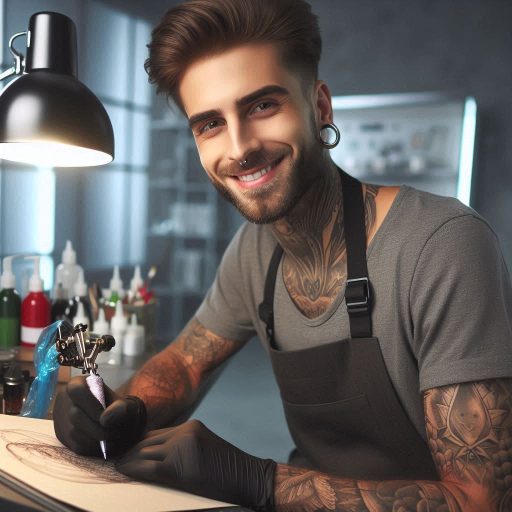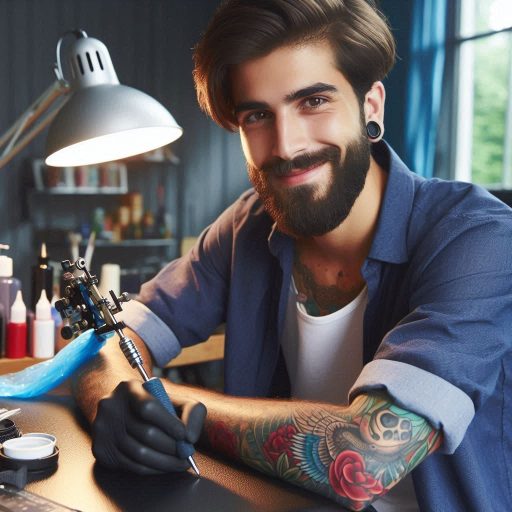Introduction
The world of event design offers two primary career paths: freelance and in-house positions.
Each option has unique benefits and challenges.
In recent years, freelancing has gained popularity among event designers.
Many professionals appreciate the flexibility it provides in their work.
Freelancers often enjoy diverse projects and clients.
This variety allows them to showcase creativity and expand their portfolios.
They can set their schedules and choose the events they want to work on.
Additionally, freelancers often have the potential for higher earnings, especially with high-demand skills.
However, freelancing comes with challenges.
Freelancers must manage their own marketing, finances, and client relationships.
The inconsistent income can create financial stress.
Freelancers also lack the job security and benefits typically offered in full-time positions.
In contrast, in-house event designers work for a specific organization.
This provides stability and a regular paycheck.
They often receive benefits like health insurance and retirement plans.
In-house designers can develop deep relationships with colleagues and clients, fostering collaboration.
Yet, in-house positions can also present limitations.
Designers may find themselves working on similar events repeatedly.
This lack of variety can stifle creativity and professional growth.
In-house roles often involve strict schedules and fewer opportunities for flexible work arrangements.
Transform Your Career Today
Unlock a personalized career strategy that drives real results. Get tailored advice and a roadmap designed just for you.
Start NowIn summary, both freelance and in-house event design jobs have distinct advantages and disadvantages.
Freelancing offers flexibility and variety, while in-house positions provide stability and benefits.
The choice depends on personal preferences, career goals, and lifestyle needs.
Understanding these dynamics can help aspiring event designers make informed decisions about their future careers.
Job Flexibility
The flexibility of freelance event design jobs, including the ability to work from anywhere
Freelance event design jobs offer remarkable flexibility.
Freelancers can work from any location, whether home or a coffee shop.
This freedom allows them to choose environments that boost creativity.
Additionally, they can set their own hours, catering to personal productivity peaks.
This with the set schedules typically found in in-house positions
In contrast, in-house event designers usually face set schedules.
They often work fixed hours in an office environment.
This structure can limit spontaneity and creative exploration.
Many in-house positions require attendance at meetings and events, further tightening schedules.
How flexibility can impact work-life balance for event designers
The flexibility of freelance roles significantly impacts work-life balance.
Freelancers can adjust their workloads to accommodate personal commitments.
This adaptability enables them to take breaks when needed and maintain mental health.
They can also choose to work during off-peak hours, reducing stress.
On the other hand, in-house event designers may struggle with work-life balance.
Set schedules can lead to longer hours and limited personal time.
Many in-house roles demand immediate availability for unexpected tasks or meetings.
This unpredictability can disrupt personal plans and increase stress levels.
Transform Your Career Today
Unlock a personalized career strategy that drives real results. Get tailored advice and a roadmap designed just for you.
Start NowIn fact, freelance event design jobs provide flexibility that enhances creativity and work-life balance.
In-house positions, while stable, can restrict personal time and spontaneity.
The choice between freelance and in-house roles depends on individual preferences for flexibility and structure.
Consider your work style and lifestyle needs before making a decision.
Embrace the option that aligns best with your goals and well-being.
Read: Essential Tattoo Equipment for Aspiring Artists
Job Security
The concept of job security in freelance versus in-house event design jobs
Job security varies significantly between freelance and in-house event design roles.
Understanding these differences is crucial for aspiring professionals.
How freelancers may have to continually seek new clients for stability
Freelancers face unique challenges in securing stable employment.
They must continually seek new clients to maintain a consistent income.
This process can be unpredictable, leading to financial stress during slow periods.
Freelancers often hustle for gigs, constantly marketing their skills and portfolio.
This ongoing search for work can feel overwhelming.
As a result, job security is inherently unstable for freelancers, relying heavily on their networking abilities.
The stability offered by in-house positions with a steady salary and benefits
In contrast, in-house event designers enjoy a more stable work environment.
These professionals typically receive a steady salary and additional benefits.
This stability offers peace of mind, as they know their income is reliable.
In-house positions often come with health insurance, retirement plans, and paid time off.
Such benefits enhance overall job security and attract many to traditional employment.
Transform Your Career Today
Unlock a personalized career strategy that drives real results. Get tailored advice and a roadmap designed just for you.
Start NowMoreover, in-house roles foster a sense of belonging within a company.
Event designers collaborate with teams, allowing for professional growth and development.
This environment encourages mentorship and long-term career progression, further solidifying job security.
Ultimately, the choice between freelance and in-house positions depends on individual priorities.
Freelancers may enjoy flexibility and creative freedom, but they sacrifice stability.
In-house event designers benefit from job security and consistent income but may face limitations in creativity.
Evaluating personal preferences is essential for making the right career choice.
Job security plays a vital role in deciding between freelance and in-house event design jobs.
Freelancers must continuously seek clients, while in-house designers enjoy stability and benefits.
Understanding these dynamics will help you choose the best path for your career.
Read: Top Event Design Trends in the United States

Creative Freedom
The level of creative freedom that freelance event designers have compared to those working in-house
Freelance event designers enjoy significant creative freedom.
They have the liberty to explore unique ideas and push boundaries.
This flexibility allows them to infuse personal style into every project.
They can choose projects that resonate with their vision, creating work that reflects their creativity.
Freelancers often select clients whose values align with theirs.
This alignment fosters collaboration and enhances their creative output.
By handpicking projects, freelancers can pursue their passions without compromise.
They can experiment with innovative designs and concepts, leading to distinctive events.
Transform Your Career Today
Unlock a personalized career strategy that drives real results. Get tailored advice and a roadmap designed just for you.
Start NowHow freelancers can choose their projects and clients to align with their creative vision
In contrast, in-house event designers face more constraints.
They work within the framework of company guidelines and brand standards.
This structure can limit their creative choices and lead to repetitive designs.
While they may have input, their ideas often undergo scrutiny.
Client preferences and corporate policies can overshadow personal creativity.
This with in-house designers who may have to follow company guidelines and client preferences
In-house designers must balance creativity with strategic objectives.
They often prioritize brand consistency and client satisfaction over personal expression.
This focus can lead to successful events, but may stifle innovation.
Adapting to strict guidelines can feel restrictive, affecting job satisfaction.
All in all, the choice between freelance and in-house positions hinges on personal preference.
Freelancers relish creative independence and project diversity.
They thrive in environments that foster experimentation.
In-house designers, however, may prefer stability and team collaboration.
Each path offers unique rewards and challenges.
Understanding these differences helps aspiring designers make informed career choices.
Whether seeking creative freedom or structure, the decision shapes their professional journey.
The ideal role aligns with individual values and career aspirations, leading to fulfillment in event design.
Read: Tattoo Design Trends: What‘s Hot in 2024
Networking Opportunities
The networking opportunities available to both freelance and in-house event designers
For freelance event designers, networking opportunities are abundant.
Transform Your Career Today
Unlock a personalized career strategy that drives real results. Get tailored advice and a roadmap designed just for you.
Start NowBy working with various clients on different projects, freelancers can expand their professional network significantly.
Each new client brings the potential for future referrals and recommendations, allowing freelancers to grow their business and establish a solid reputation within the industry.
How freelancers have the chance to work with various clients and expand their professional network
In contrast, in-house event designers may have access to a more stable network within their company or industry.
Working within a specific organization provides designers with the chance to build relationships with colleagues, vendors, and other industry professionals on a consistent basis.
This can lead to long-term partnerships and collaborations that can enhance the designer’s career growth within the company.
How in-house designers may have access to a more stable network within their company or industry
Both freelancers and in-house designers can benefit from networking opportunities, albeit in different ways.
Freelancers have the freedom to work with a diverse range of clients, while in-house designers can establish deeper connections within their company or industry.
Therefore, both avenues offer unique networking prospects that can help designers advance in their careers and expand their professional reach.
Read: Must-Have Tools for Every Event Designer
Find Out More: Art Director Interview Questions and How to Answer
Compensation
The compensation structures of freelance and in-house event design jobs
Compensation structures for freelance and in-house event design jobs differ significantly.
Freelancers typically set their rates based on project complexity and client budgets.
They can charge hourly or flat fees, allowing flexibility.
In contrast, in-house designers usually receive a fixed salary, offering stability but less variation in earnings.
How freelancers can set their rates and potentially earn more based on their experience and demand
Freelancers often have the potential to earn more, especially if they build a strong portfolio and network.
They can adjust rates based on experience and demand, ensuring competitive compensation.
Successful freelancers can increase their rates as their reputation grows, capitalizing on high-demand periods.
In-house designers enjoy a steady income, which can be beneficial for financial planning.
Their salaries usually reflect industry standards, providing a predictable monthly budget.
Additionally, many in-house positions offer benefits, such as health insurance, retirement plans, and paid time off.
Transform Your Career Today
Unlock a personalized career strategy that drives real results. Get tailored advice and a roadmap designed just for you.
Start NowThese perks contribute to overall job satisfaction and long-term financial security.
Contrast this with the steady salary and benefits often provided to in-house designers
Freelancers must navigate income variability.
They may face lean periods between projects, requiring careful budgeting.
However, when demand peaks, they can take on multiple clients, significantly boosting their earnings.
This variability can be challenging but also rewarding for those who manage it well.
On the other hand, in-house designers enjoy less financial uncertainty.
Their salaries remain consistent, which can be reassuring.
However, they might miss out on higher earnings opportunities available to freelancers.
The trade-off for steady pay is often less flexibility in work hours and creative control.
Essentially, both paths offer unique compensation experiences.
Freelancers can potentially earn more through strategic rate setting, while in-house designers benefit from stability and comprehensive benefits.
Choosing between them depends on personal preferences and career goals.
See Related Content: How to Network and Find Art Director Opportunities
Skill Development
The opportunities for skill development in freelance versus in-house event design positions
Event design offers diverse paths for skill development, whether freelance or in-house.
Each option presents unique opportunities and challenges for designers.
How freelancers may have to continuously learn new skills to stay competitive in the industry
Freelance event designers often face a rapidly changing landscape.
To stay competitive, they must continuously learn new skills.
They might explore software updates, design trends, and client management techniques.
Attending workshops and online courses helps freelancers keep their skills sharp.
Transform Your Career Today
Unlock a personalized career strategy that drives real results. Get tailored advice and a roadmap designed just for you.
Start NowNetworking with other professionals can also provide insights and learning opportunities.
How in-house designers may have access to training programs and resources within their company
Freelancers often juggle multiple roles, which enhances their versatility.
They become adept at managing budgets, timelines, and client expectations.
This multi-faceted experience helps them develop a broad skill set
However, the pressure to self-educate can be daunting, especially when working alone.
In contrast, in-house event designers typically enjoy more structured skill development.
Companies often invest in training programs and resources for their staff.
These may include workshops, seminars, or even tuition reimbursement for relevant courses.
This support fosters a more stable environment for growth.
Designers can deepen their expertise in specific areas without the pressure of constant self-education.
In-house positions also provide mentorship opportunities.
Junior designers can learn from seasoned professionals, gaining valuable insights and guidance.
Collaborating with cross-functional teams can further enhance their skills, offering exposure to different perspectives.
However, in-house designers may face limitations in exploring diverse styles.
They often adhere to company branding and guidelines, which can restrict creative freedom.
This focus on consistency might limit their exposure to broader design trends.
To sum up, both freelance and in-house event design careers present unique skill development pathways.
Freelancers thrive on continuous learning and adaptability. In-house designers benefit from structured training and mentorship.
Choosing the right path depends on individual goals and preferences in skill development.
Conclusion
After exploring the differences between freelance and in-house event design jobs, it is clear that both options have their own unique benefits and challenges.
Transform Your Career Today
Unlock a personalized career strategy that drives real results. Get tailored advice and a roadmap designed just for you.
Start NowFreelancers enjoy flexibility and autonomy, while in-house designers have stability and support.
It is important for readers to consider their own preferences, career goals, and work style when choosing between freelance and in-house positions.
By reflecting on these factors, individuals can make a more informed decision that aligns with their professional aspirations.
As the event design industry continues to evolve, there are increasing opportunities for talented designers to showcase their creativity and skills.
The growing diversity within the industry allows for individuals to explore various avenues, from working as a freelancer to joining an in-house team.
Whether you choose to pursue freelance or in-house event design jobs, it is essential to follow your passion, stay true to your craft, and remain adaptable in the ever-changing landscape of the industry.
By staying true to yourself and embracing the opportunities that come your way, you can forge a successful and fulfilling career in event design.
[E-Books for Sale]
The Big Book of 500 High-Paying Jobs in America: Unlock Your Earning Potential
$19.99 • 500 High-Paying Jobs • 330 pages
Explore 500 high-paying jobs in America and learn how to boost your career, earn more, and achieve success!
See All 500 High-Paying Jobs of this E-Book
1001 Professions Without a Degree: High-Paying American Jobs You Can Start Now
$19.99 • 1001 Professions Without a Degree • 174 pages
Discover 1001 high-paying jobs without a degree! Unlock career tips, skills, and success strategies for just $19.99!




